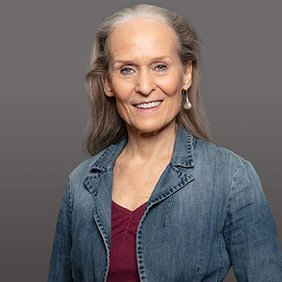"From the right of the strongest to the strength of the law": IFSH quotes with international reach

For 50 years, IFSH scholars and scholars have followed and provided insight on world events in security policy. Some of their quotes, wordings and phrases have made it onto the international political stage. An example is the dictum about the law of the strongest and the strength of the law, which sums up a complex issue and a dilemma in international politics in just a few words. The phrase comes from the pen of Dr Margret Johannsen. Here, the long-time IFSH researcher looks back on the origin and meaning of the formulation.
"The horror of the war in the Gulf should cause the United Nations to develop instruments that counter the law of the strongest with the strength of the law. In future, the international community must no longer be under the constraint of having to delegate the right to use military force so as to revise a violent breach of international law." This conclusion was drawn from the Second Gulf War (2.8.1990-5.3.1991by a collective of authors from the IFSH (Egon Bahr, Matthias Bartke, Hans-Georg Ehrhart, Thorsten Görrissen, Margret Johannsen, Roland Kaestner, Dieter S. Lutz, Erwin Müller, Reinhard Mutz, Götz Neuneck, Claudia Schmid) in the series Hamburger Informationen zur Friedensforschung und Sicherheitspolitik of March 11, 1991).
In a preliminary draft of the paper, Roland Kaestner, a trained paratrooper and Military Fellow at the IFSH, had taken offence at the fact that Kuwait was liberated from Saddam Hussein’s Iraqi forces not by troops under UN supreme command, but by a so-called "coalition of the willing" under US supreme command. The reason: the UN had no troops of its own. I had edited the draft and sharpened my colleague's formulation to read "oppose the right of the strongest with the strength of the right" – and Kaestner approved.
Former Foreign Minister Kinkel used the term before the UN General Assembly
The “strength of the law instead of the law of the strongest" quote began its career at the IFSH. Reinhard Mutz was the first to use the phrase in one of his manuscripts, and then the director did so as well. Thanks to the honour bestowed upon it by Egon Bahr, it made all the way to the United Nations. In his speech to the 47th UN General Assembly on 23 September 1992, the then Federal Foreign Minister Klaus Kinkel denounced the war of extermination and expulsion in Bosnia-Herzegovina along with the wars in Somalia, Sudan, Liberia, Afghanistan, Georgia and Nagorno-Karabakh, concluding: "The goal of overcoming nationalist power politics, violence and human rights violations through international and supranational cooperation remains as valid as ever. Even setbacks must not divert us from this right path towards the rule of law and respect for human dignity. There is no reasonable alternative to this, unless one wanted to go back to the law of the strongest."
It also became a catchy phrase for Angela Merkel
And on it went from New York to Beijing. While accepting an honorary doctorate from Nanjing University in Beijing at the Chinese Academy of Sciences on 12 June 2016, German Chancellor Angela Merkel urged the expansion of the rule of law in China. "The core of all rule of law is that the strength of the law applies and not the law of the strongest", Merkel said. Law must not be used as a tool of power, she continued, but must apply to all, regardless of politics.
Within five years, the phrase "from the law of the strongest to the strength of the law" had not only come a long way, it had also undergone a considerable reinterpretation. Whereas in 1991 the aim was to turn the UN into a genuine system of collective security with its own troops, in the following year the German Foreign Minister lamented over the wars that had broken out after the end of the East-West conflict and the collapse of the Soviet Union and called for international co-operation. There was no longer any talk of collective security.
Four years later, the German chancellor's reinterpretation was an even more fundamental one. It did not deal with international politics, but China's internal constitution. In front of students and professors at the Chinese Academy of Sciences, Merkel called for the expansion of the rule of law in China. While accepting an honorary doctorate by Nanjing University in Beijing, she argued emphatically that non-governmental organisations be able to continue to work freely despite a law limiting those organisations which was set to come into force in China in 1997. However, she did not do so in her capacity as head of state. In photos of the ceremony, Merkel is wearing a graduation cap. In this respect, the turn of phrase "from the right of the strongest to the strength of the law" was returned to its origin: a scientific institute.
